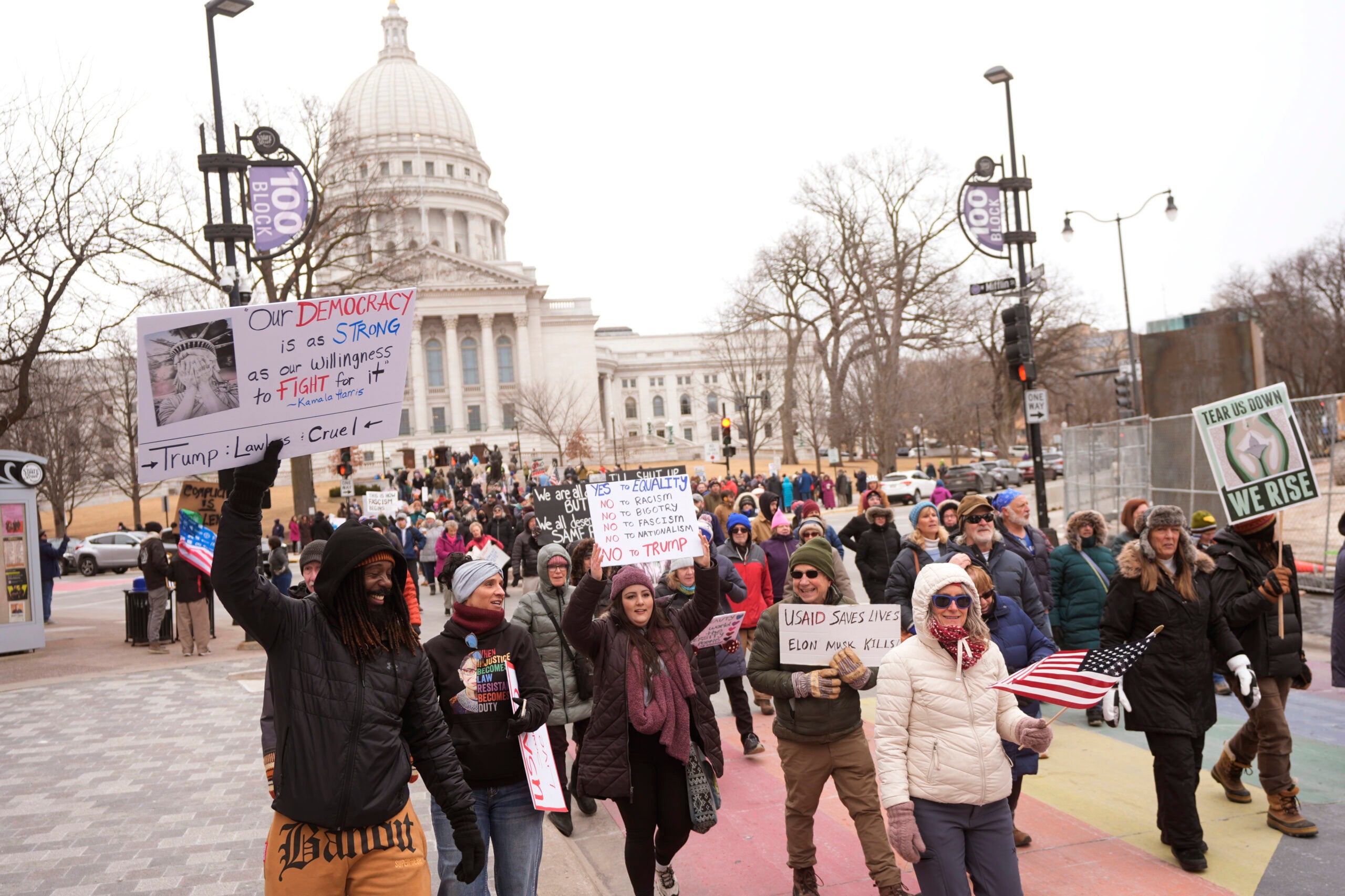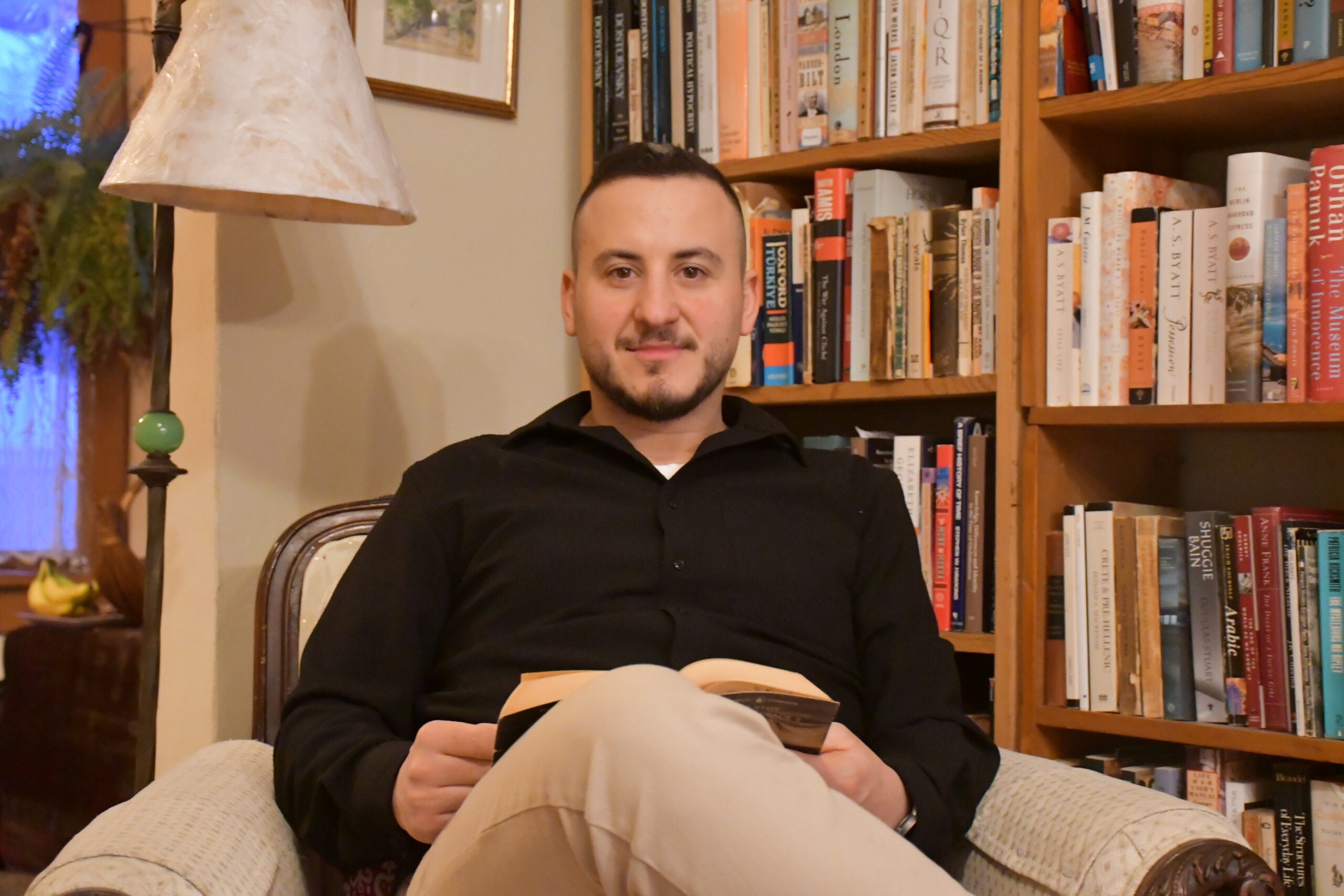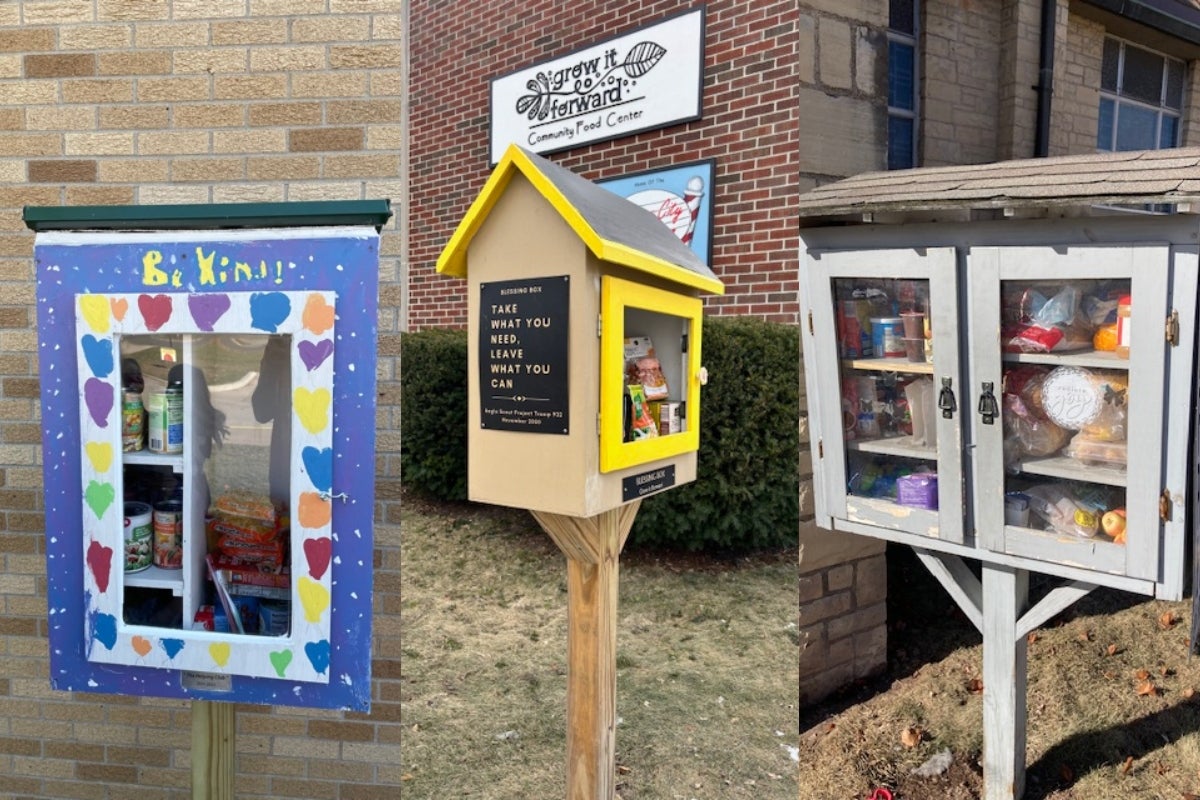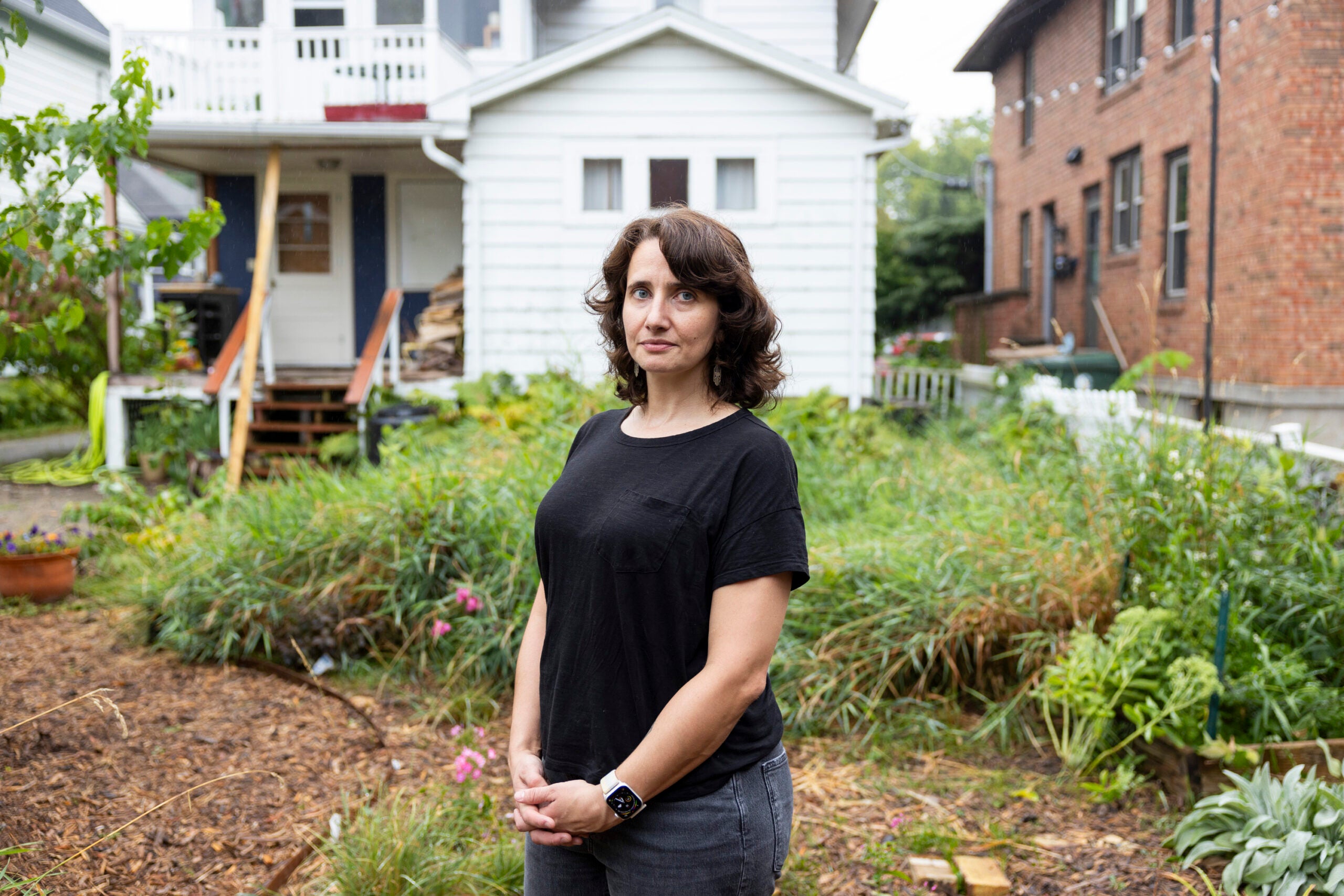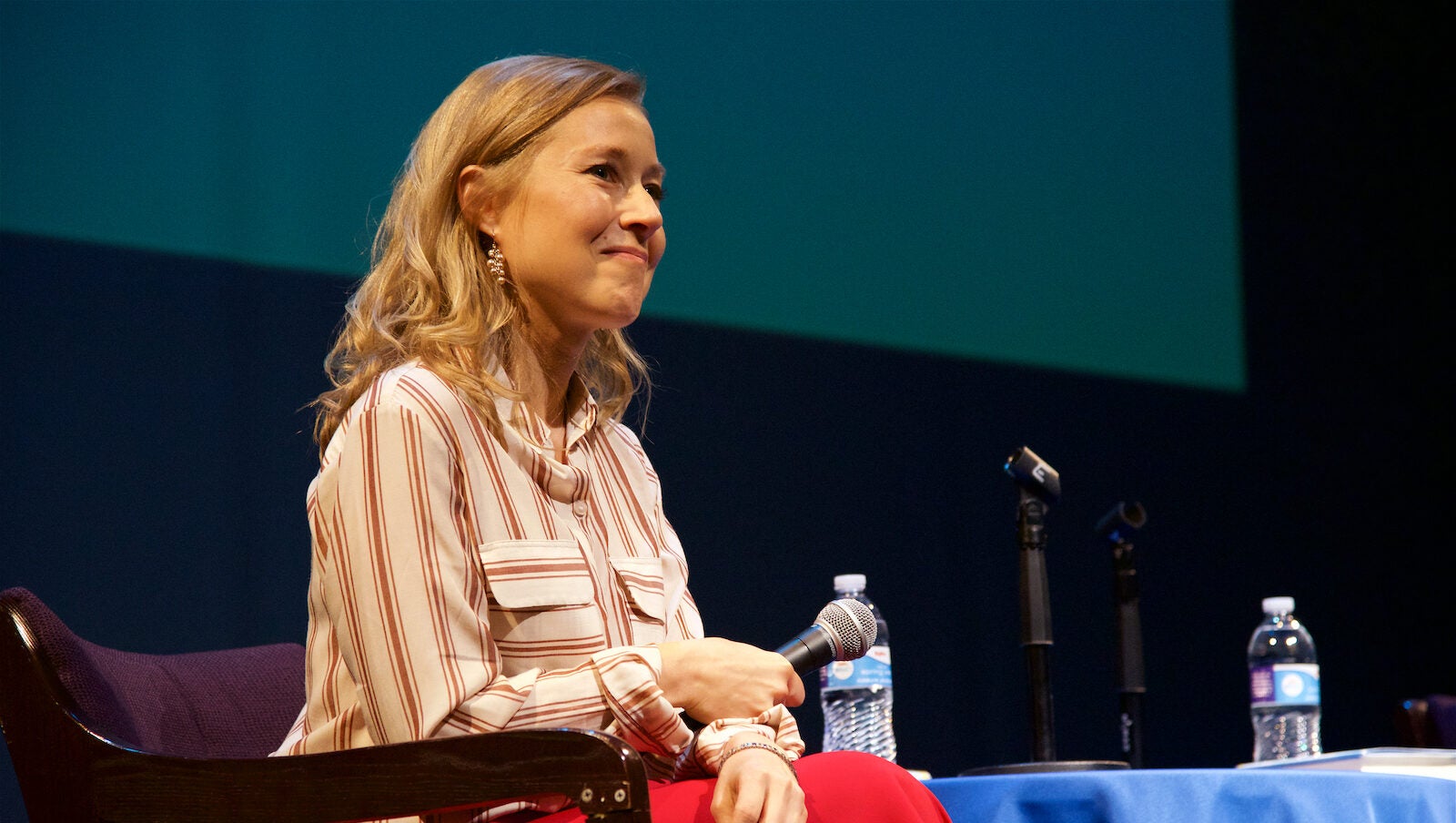An exhibit at University of Wisconsin-Superior this week looks to give people an idea of what it feels like to be a refugee.
Students took part in the interactive displays on Tuesday, which included a makeshift minefield. They tried to avoid popping balloons that simulated mines, which were hidden underneath a green floor mat.
UW-Superior Political Science Professor Khalil “Haji” Dokhanchi said his students put on the exhibit twice each year to give people a sense of the difficulties refugees face.
News with a little more humanity
WPR’s “Wisconsin Today” newsletter keeps you connected to the state you love without feeling overwhelmed. No paywall. No agenda. No corporate filter.
“There are a number of different obstacles they have to encounter: landmines, cluster munitions, unexploded ordnances … smugglers who steal from (refugees). There’s a wide variety of things that they come across.”
Students also created displays to show the challenges refugees face with health care, the legal system and access to food.
“You get, for example, 400 grams of rice, wheat or maize. You get 60 grams of beans, peas or lentils, 25 milliliters of vegetable oil, 15 grams of sugar, 5 grams of salt, 100 grams of wheat, soy,” he said. “This is how much you’re supposed to provide on a daily basis for refugees assuming there is funding, assuming the food is available.”
The World Food Programme’s website claims it costs $25 million each week to meet the needs of people who have been affected by Syria’s civil war. The United Nations’ food aid organization provides assistance to 4 million people inside the country each month.
There are more than 20 million refugees worldwide and around 60 million people who have had to leave their homes, according to most recent figures from the UN Refugee Agency.
UWS junior Ethan Wood, who is studying political science, said it’s important people understand refugees like those fleeing Syria aren’t just searching for a better life.
“They’re leaving because they have a well-founded fear of persecution. Their own homes aren’t safe. Their children aren’t safe. Their families aren’t safe,” said Wood.
International student Prashant Burlakoti of Nepal said Americans should focus less on their fears of refugees and learn more about them.
“They’re human like us,” said Burlakoti. “They deserve an equal chance like we do.”
The exhibit will be held through Wednesday in the Great Room of the Yellowjacket Union at UWS.
Wisconsin Public Radio, © Copyright 2026, Board of Regents of the University of Wisconsin System and Wisconsin Educational Communications Board.

